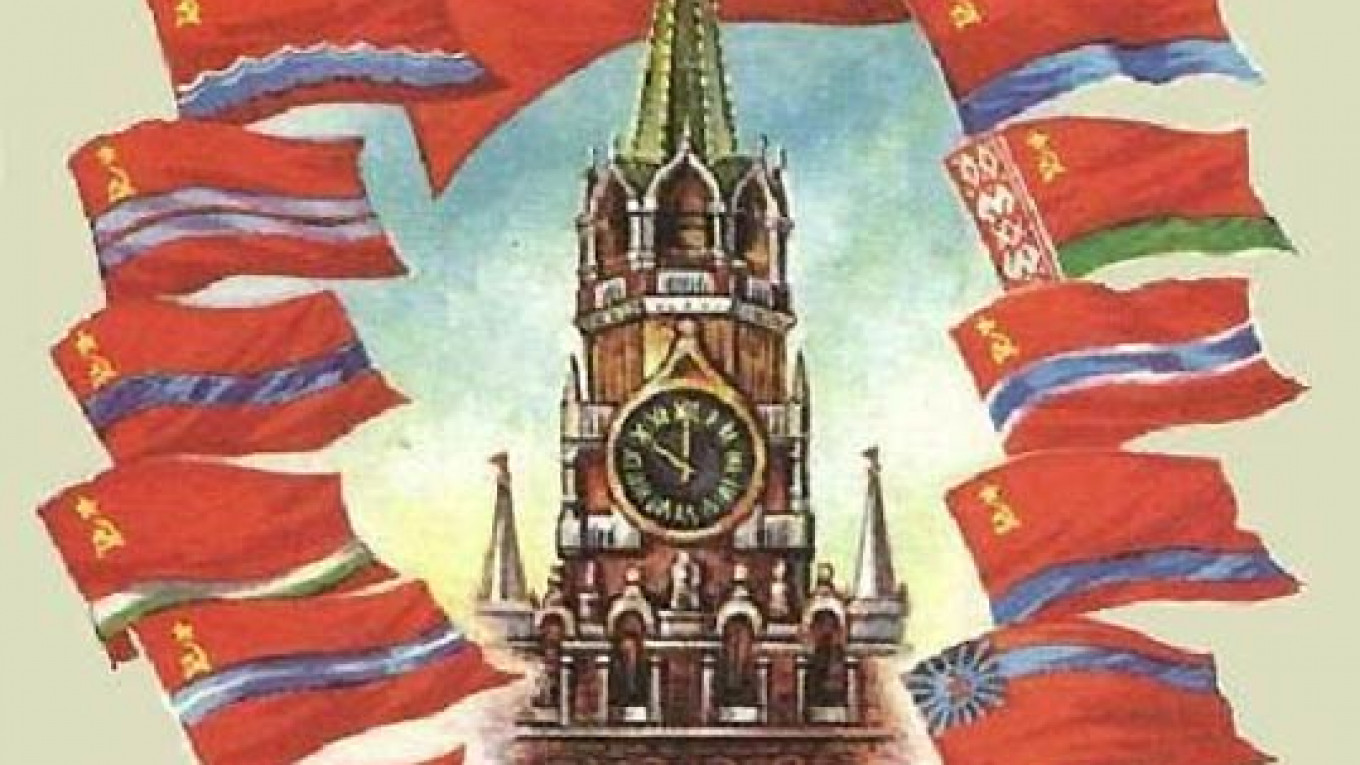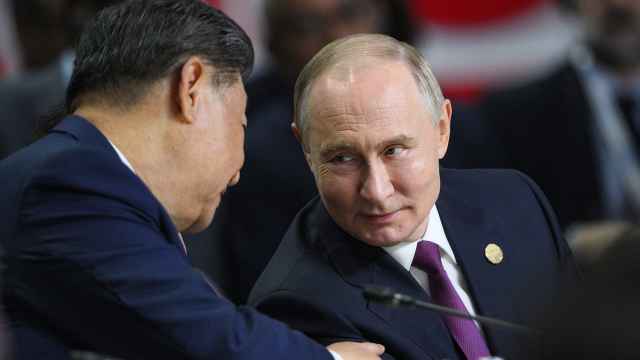As the leaders of the Customs Union are meeting this week in Moscow, the Kremlin's heart may no longer be in it.
President Vladimir Putin is weary of the tortured process of restoring Russia's dominance in the former Soviet Union through economic integration. Efforts to move beyond free trade are resisted by Belarus and Kazakhstan.
After Crimea, Putin has discovered the value of acting boldly in Russia's neighborhood to achieve his strategic objective: restoring an undiminished Russian state. "Polite green men" now trump economic integration.
In Crimea, Putin rejected Russia's terms of the post-Soviet settlement, openly questioning the legality of the Soviet collapse. The chairman of Russia's Constitutional Court argued recently that the Belavezha Accords, which the leaders of three Soviet republics signed in December 1991 to dissolve the Soviet Union, could be voided because of legal irregularities in the agreement.
With all post-Soviet borders up for grabs, the challenge is to determine what should be incorporated and what would be better left out.
The Baltic states, who declared their independence before the Soviet Union collapsed, are safely out.
Southeastern Ukraine is clearly in but doubts remain whether it could be detached without major bloodshed.
Belarus and Kazakhstan are in. Since their leaders have no viable succession options, they are vulnerable to external subversion. Both are frustrated with Putin's audacity but may get an offer they cannot refuse: They can keep their fiefdom for life under Russian rule or face "popular uprisings against tyranny."
Azeri President Ilham Aliyev might get a similar offer but is likely to stay out. With Armenia in, there is little desire to make Nagarno-Karabakh Russia's internal conflict. Georgia is out without Abkhazia and South Ossetia.
Turkmenistan, with its huge energy reserves, small non-Slavic population and a history of brutal treatment of Russians, could be up for "democracy promotion" and "regime change," but would remain a vassal state.
Uzbekistan is out, unless President Islam Karimov's regime unravels and the country succumbs to militant Islamist insurgency. Kyrgyzstan and Tajikistan are already in; half of their people are already in Russia.
It seems that Putin is trying to revisit the Soviet Union's demise to boost Russia's power. He should be careful what he wishes for.
Vladimir Frolov is president of LEFF Group, a government relations and PR company.
A Message from The Moscow Times:
Dear readers,
We are facing unprecedented challenges. Russia's Prosecutor General's Office has designated The Moscow Times as an "undesirable" organization, criminalizing our work and putting our staff at risk of prosecution. This follows our earlier unjust labeling as a "foreign agent."
These actions are direct attempts to silence independent journalism in Russia. The authorities claim our work "discredits the decisions of the Russian leadership." We see things differently: we strive to provide accurate, unbiased reporting on Russia.
We, the journalists of The Moscow Times, refuse to be silenced. But to continue our work, we need your help.
Your support, no matter how small, makes a world of difference. If you can, please support us monthly starting from just $2. It's quick to set up, and every contribution makes a significant impact.
By supporting The Moscow Times, you're defending open, independent journalism in the face of repression. Thank you for standing with us.
Remind me later.








